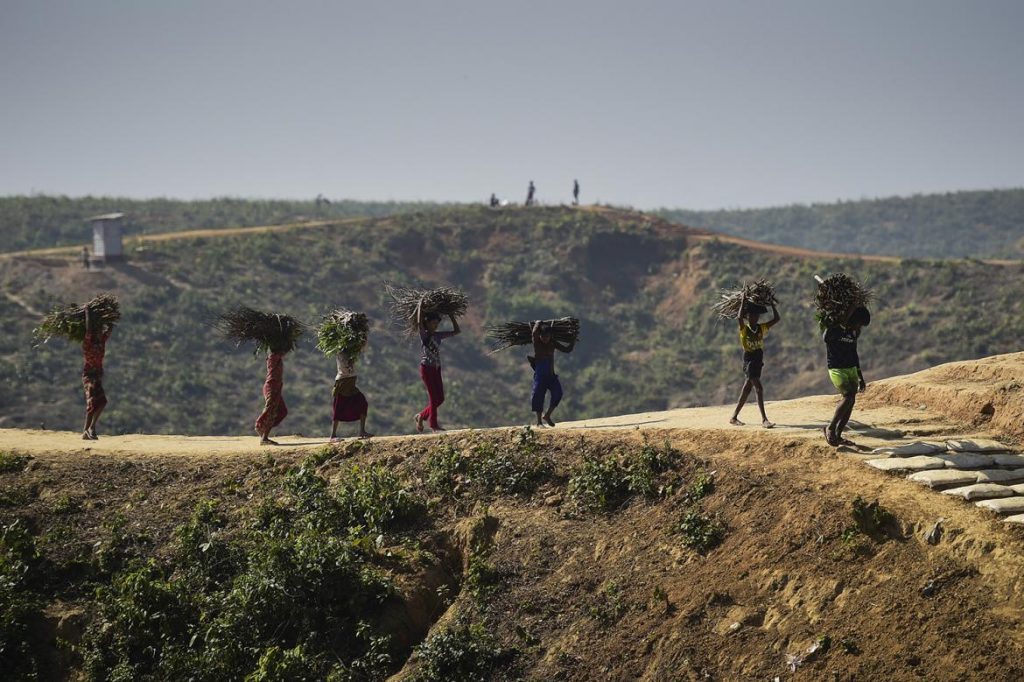By SAM JAHAN | AFP
BALUKHALI, Bangladesh — Rohingya Muslims who fled a village where Myanmar has admitted its forces helped massacre 10 people said Thursday the victims were all civilians, not fighters as asserted by the Tatmadaw.
The office of Senior General Min Aung Hlaing confirmed Wednesday that security forces took part in killing “Bengali terrorists” on September 2 in the village of Inn Din in Maungdaw, using a pejorative term for Rohingya.
It was the first time Myanmar had admitted abuses during an army-led crackdown on Rohingya militants from late August that sparked a mass exodus of the Rohingya.
But displaced Rohingya inside Bangladesh have angrily denied the army’s account, with survivors who fled Inn Din insisting those killed were not militants but civilians murdered in cold blood.
Support more independent journalism like this. Sign up to be a Frontier member.
Inn Din villager Wal Marjan, 30, said they were attacked by Rakhine mobs flanked by soldiers, who later “selected 10 to 15 men to attend a meeting”.
They were never seen again, said Marjan, who was later told by another man that her husband and the others were slaughtered.
“He said his body was thrown into a mass grave with the other men,” Marjan told AFP at a refugee camp in southeast Bangladesh, adding her husband had no connections with the Arakan Rohingya Salvation Army.
In its account of the massacre the army chief’s office said security forces captured 10 Rohingya militants before killing them as violence engulfed the village and its surrounding area.
The post on Facebook also gave the first confirmation of a mass Rohingya grave inside Rakhine state.
But Inn Din villager Hossain Ahammad said the slain men were “fishermen, farmers, lumberjacks and clerics”.
“They were not part of any movement. They are simply victims of the Burmese army’s wrath,” he told AFP.
Refugees who have fled in their hundreds of thousands to Bangladesh have given consistent accounts of massacres, rape and torture by Myanmar security forces flanked by ethnic Rakhine mobs.
Those allegations, which have been cross-checked by media and rights groups, have seen Myanmar accused of ethnic cleansing by the US and UN and prompted questions over whether the crackdown may have amounted to genocide.
Until Wednesday, Myanmar army has vigorously denied any abuses, instead locking down access to Rakhine state and accusing critics — including the UN — of pro-Rohingya bias and spreading “fake news”.
The army chief’s office said “action” would be taken against villagers and security members involved in the violence at Inn Din.
Last month Doctors Without Borders said at least 6,700 Rohingya were killed in the first month of the army crackdown on rebels in Rakhine — the highest estimated death toll yet of violence that erupted on August 25.







